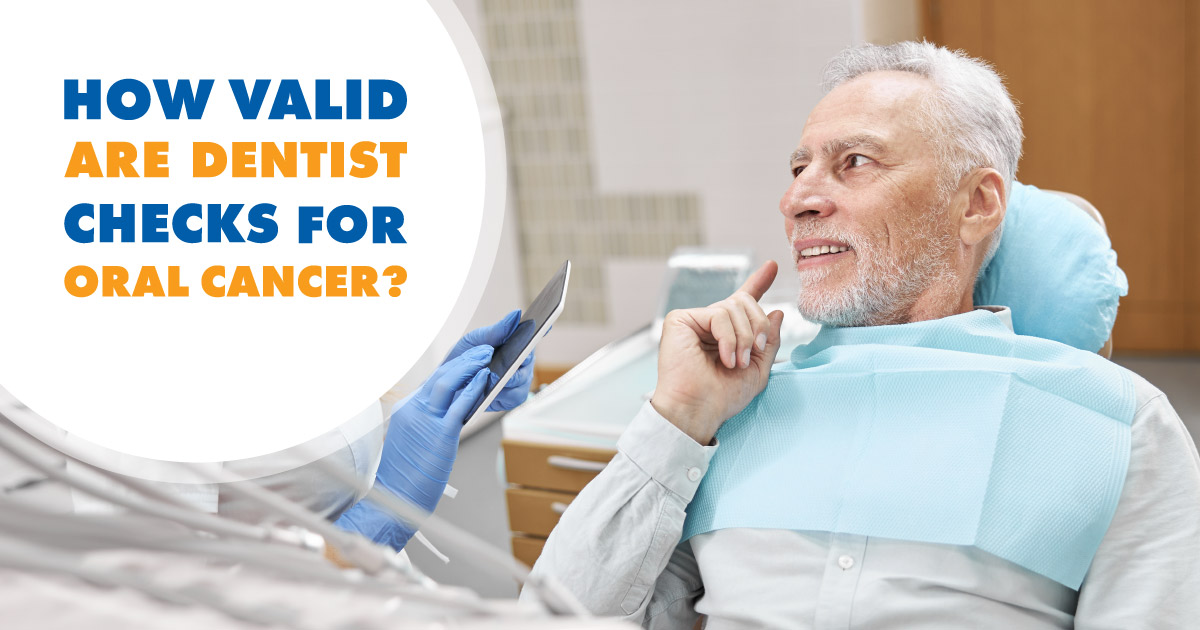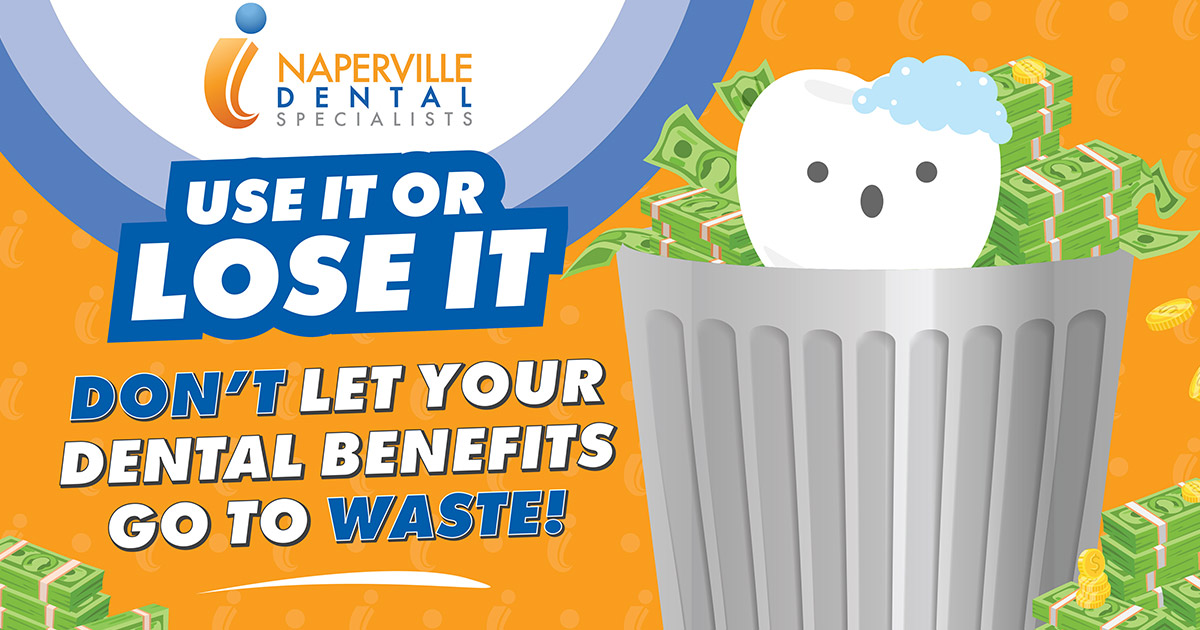
April is Oral Cancer Awareness Month, and at Naperville Dental Specialists, we’re using this opportunity to answer a critical question: how valid are dentist checks for oral cancer?
This is an important topic because, according to the Oral Cancer Foundation, oral cancer is responsible for over 12,000 deaths annually in the U.S. alone. The good news? Routine dental visits can be a powerful tool for detecting oral cancer in its earliest stages when it’s still highly treatable.
Do Dentists Check for Oral Cancer?
Yes, many dentists do check for oral cancer. If your dentist doesn’t offer the service, you should find a dental practice like Naperville Dental Specialists that has the training and tools to provide optional oral cancer screenings.
While there is no national protocol, most dentists perform an 8-step oral cancer screening that involves looking at the lips, tongue, gums, floor and roof of the mouth, and inside of the cheeks, as well as palpating the head, jaw, and neck.
Both dentists and dental hygienists are trained to identify abnormalities such as red or white patches, lesions or swelling that could be a sign of cancer or another oral disease.
Can a Dentist Diagnose Oral Cancer?
Patients are sometimes curious about whether a dentist can diagnose mouth cancer. The answer is, not exactly. A general dentist’s role is discovery. If they find something suspicious, they’ll perform a biopsy or refer you to an oral surgeon for a biopsy and diagnosis. So while a dentist screening for oral cancer won’t confirm the presence of cancer, it plays a vital role in early detection.
At Naperville Dental Specialists, we have general dentists and specialists, including a board-certified oral surgeon, under one roof. This means you won’t need to be referred out for a biopsy and diagnosis. Instead, we can perform the biopsy at our practice and send it to the lab where a pathologist will examine the tissue under a microscope. Of course, we let you know the results as soon as we receive them.
How Valid are Dentist Checks for Oral Cancer According to Research?
Very valid! While there’s no way to accurately diagnose oral cancer with a visual exam alone, oral cancer screenings can save lives through early detection. The Oral Cancer Foundation states that because oral cancer is often found late, only 57% of those diagnosed survive beyond five years. However, when identified in its early stages, there’s an 80 to 90% survival rate. That’s a huge difference and really makes the case for proactive screening.
A large, cluster-randomized controlled trial in Kerala, India, where oral cancer rates are among the highest in the world, showed that subjects who underwent routine oral cancer screenings had cancers diagnosed at earlier stages and significantly higher 5-year survival rates compared to those who were not screened. High-risk individuals who were screened also had a notably lower oral cancer mortality rate (Sankaranarayanan et al., 2005).
This study relied only on visual and palpation screening, which highlights how impactful even standard dentist checks can be when done regularly and thoroughly.
Is an Oral Cancer Screening at the Dentist Enough?
The challenge lies in what can’t be seen with the naked eye. Some dangerous lesions can mimic benign issues like a canker sore or irritation from a poor-fitting denture. A visual and tactile exam alone can sometimes lead to missed or delayed diagnoses.
That’s where technology like VELscope® comes in. At Naperville Dental Specialists, we go beyond the standard visual exam by offering VELscope oral cancer screenings. This screening test for oral cancer uses blue-spectrum light to highlight abnormalities in soft tissue that are invisible in natural light. It does not emit radiation, is completely painless, and allows us to detect suspicious lesions earlier when treatment is most effective.
VELscope is an adjunctive tool, meaning it’s used alongside the comprehensive oral exam, not in place of it. It helps guide clinical judgment and determine whether an area needs monitoring, a biopsy or treatment.
If you have risk factors for oral cancer or you simply like to stay on top of your health, combining comprehensive oral exams, VELscope screenings, and monthly self-checks will significantly increase the odds of catching cancer early.
Who Should Be Screened for Oral Cancer?
Everyone. While tobacco use, alcohol consumption, HPV, sun exposure and a family history of cancer increase your risk, oral cancer can affect anyone. In fact, cases related to HPV are rising in younger populations who don’t fit traditional risk profiles.
Signs to watch for include:
- Sores that don’t heal
- Persistent sore throat and/or hoarseness
- Red or white patches in the mouth
- Tongue or jaw pain
- Lumps, bumps or swelling in the mouth, jaw or neck
- Changes in how your teeth fit together
While it’s easy to find a “Do I Have Mouth Cancer?” quiz online, if you have concerns or identify any of the signs above, you should schedule a dental visit. A professional evaluation is always best.
The Bottom Line
So how valid are dentist checks for oral cancer? Very. When performed regularly and enhanced with tools like VELscope, oral cancer screenings are a powerful weapon against a disease that’s too often detected too late.
At Naperville Dental Specialists, we’re committed to providing advanced, comprehensive care, including oral cancer screenings. If it’s been a while since your last exam, now’s the perfect time to schedule one. Contact us today to book an oral cancer screening in Naperville.
Sources:
- The Oral Cancer Foundation, https://oralcancerfoundation.org/.
- Sankaranarayanan R, Ramadas K, Thomas G, et al. Effect of screening on oral cancer mortality in Kerala, India: a cluster-randomised controlled trial. Lancet. 2005;365(9475):1927-1933. doi:10.1016/S0140-6736(05)66658-5









































